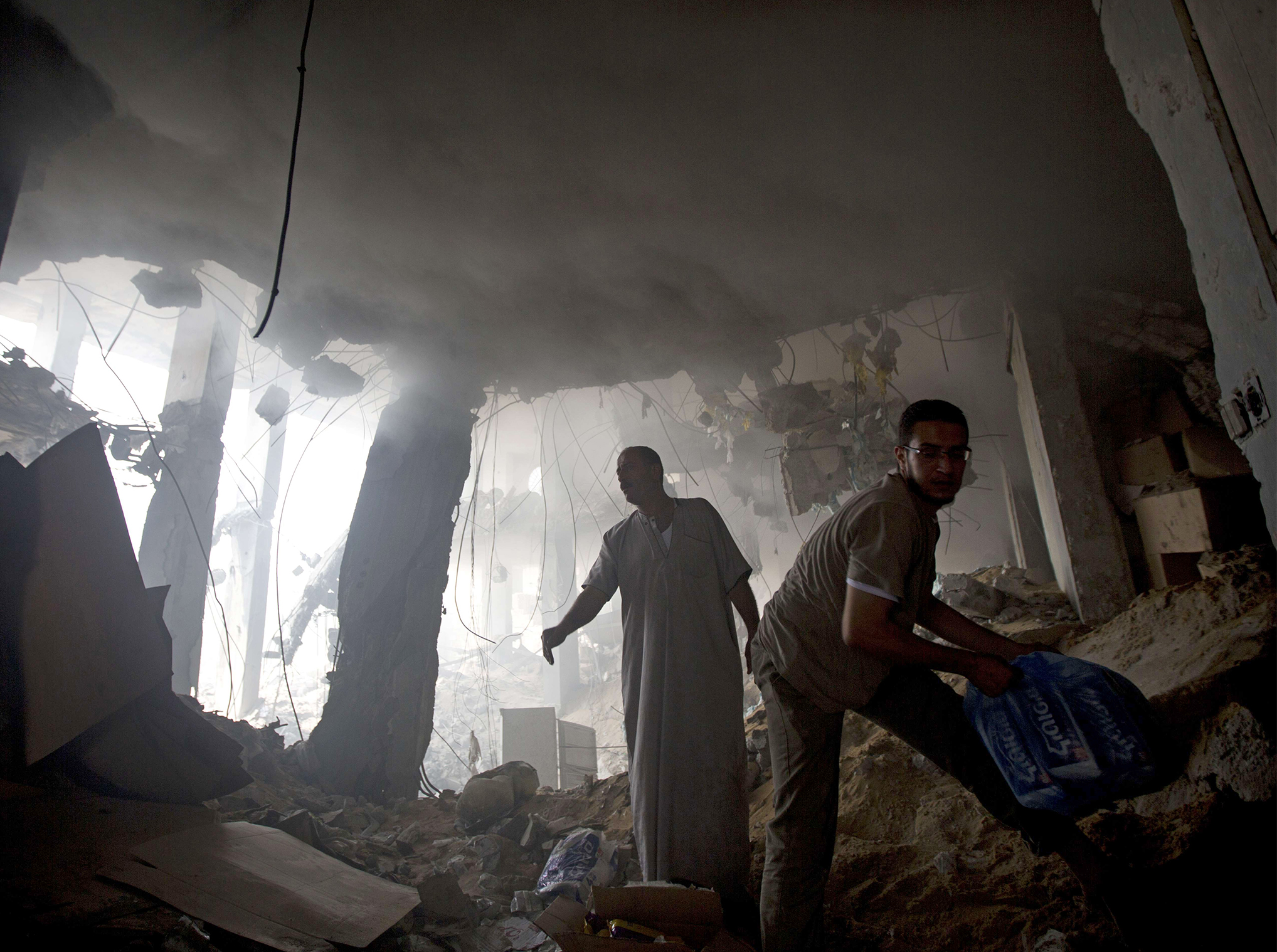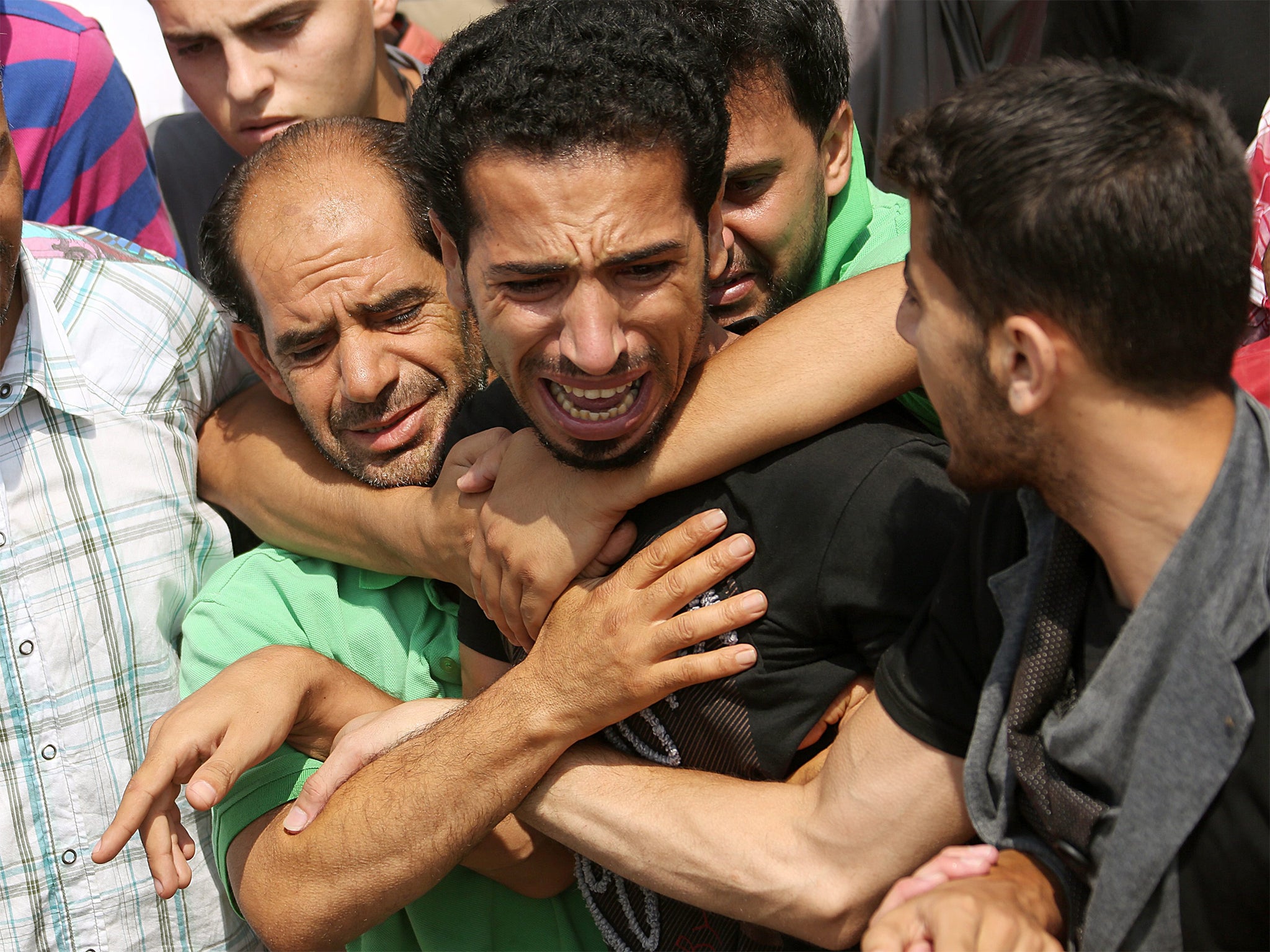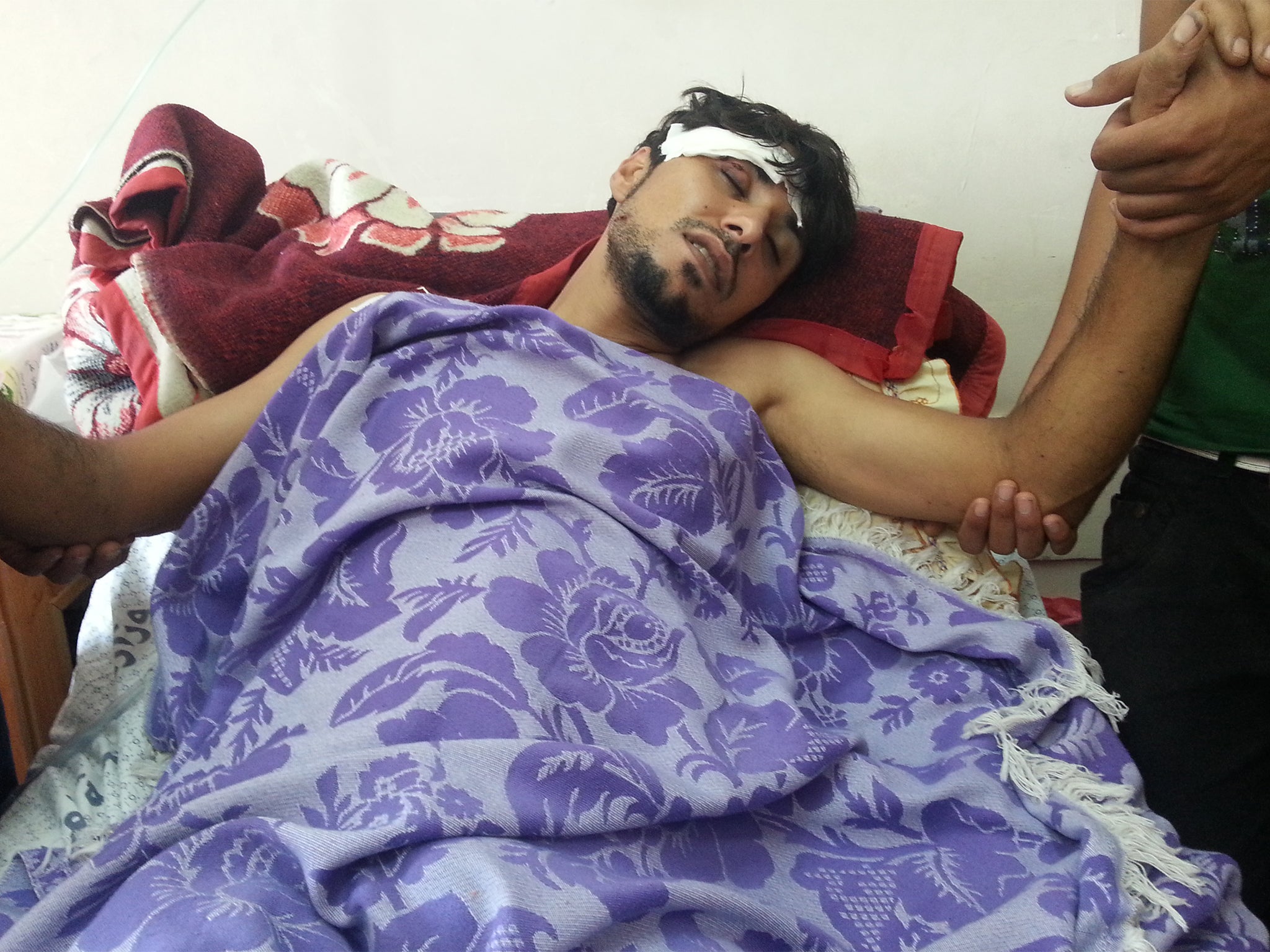Israel-Gaza conflict: Families search for a place of safety from the violence, but the frontline is everywhere in Gaza
The Shamali family has been subjected to military strikes three times, in different locations, on three consecutive days

Your support helps us to tell the story
From reproductive rights to climate change to Big Tech, The Independent is on the ground when the story is developing. Whether it's investigating the financials of Elon Musk's pro-Trump PAC or producing our latest documentary, 'The A Word', which shines a light on the American women fighting for reproductive rights, we know how important it is to parse out the facts from the messaging.
At such a critical moment in US history, we need reporters on the ground. Your donation allows us to keep sending journalists to speak to both sides of the story.
The Independent is trusted by Americans across the entire political spectrum. And unlike many other quality news outlets, we choose not to lock Americans out of our reporting and analysis with paywalls. We believe quality journalism should be available to everyone, paid for by those who can afford it.
Your support makes all the difference.A body hung, caught in a white bedsheet, from the fifth floor of what was left of Salam Towers this afternoon. It was of a woman, one of 11 killed when two missiles slammed into the high-rise building in the centre of Gaza City on Monday night. The emergency services were still trying to retrieve the remains without sending huge chunks of the precarious structure crashing down.
Among the dead were 53 year old Ibrahim Kelani, his wife Teghreed and five children, aged between four and 12. They had sought shelter in the building just the day before from their home in Shujaiya, a devastated town where more than 100 people had died in prolonged and vicious fighting, including six Israeli soldiers. A seventh, Sergeant Oron Shaul, is missing, captured, claims Hamas, by its fighters.
The family were German citizens. At Shifa Hospital, standing outside the morgue, Ibrahim's brother, Saleh Kelani was bitter about what he saw as Western double standards over the conflict. “Why do we hear nothing from Germany, they held German passports, where are the protests from Germany, from Angela Merkel, about these killings? When Israelis are killed then the whole world, Europe, America are full of concern? But for this, there is nothing.
“We are so upset, the family came here thinking they had got away from danger, now they are gone. Why did they bomb this place, there are no fighters here.
The Kelanis were among many in Gaza who thought they had reached a place of safety, away from the frontline, only to find the frontline was everywhere in Gaza.
The Shamalis, also from Shujaiya, had been subjected to military strikes three times, in different locations, on three consecutive days. They watched their home crumble behind them from tank shells as they left just before six on Sunday morning after a night of gunfire and bombs.
The family arrived in Gaza City, to stay with relations at an apartment block, Dawur Towers, after a fraught journey. It was hit by missiles on Monday evening, killing eight people and injuring a dozen others, among them 21 year old Mohammed Shamali. The rest of the family moved on to other relations, at Al Yazhy Tower. That was hit at five this morning, leaving 20 wounded and dozens more homeless.

“Where do we go now?” Asked Ibithan Shamali, her forehead bandaged from shrapnel in the second attack. “All the [UN] shelters are full, our relations are also without homes now. We shall have to find somewhere to rent; I don't know what will happen if we can't do that.”
Her son Mohammed, lying in a ward in Shifa Hospital, with wounds to his stomach, chest and back, winced with pain as he smiled: “I think I am the only one who is guaranteed a bed. I supposed I am lucky because I only went through two bombings, not three.
“But seriously, I think I am very lucky to be alive, so many people died there. I was lying on a bed which fell through the floor from the third to the second floor. There was smoke everywhere and I became unconscious.
“I feel very angry about what's happening to us, seeing children getting hurt, killed, in Shujayia; my mother getting hurt after coming here. I used to work at the US consulate in Jerusalem in the past, I liked the Americans, they had good education programmes. But, when it comes to politics, they always back Israel against us. Why don't they ask the Israelis why they are asking us to move from our homes and then bombing us after we do?”

Mohammed Abu Eyada, also 21, lay on the next bed. He had been evacuated from a refugee camp in central Gaza, which had come under attack on Saturday, to Al-Aqsa Hospital in Deir al-Balah. “There were lots of people, it was very crowded, but we felt since this was a hospital, we will be alright staying there until there is a ceasefire” he recounted.
On Monday afternoon the management received orders from the Israeli military to evacuate patients and staff. While this was being organised the building was hit by three tank shells, killing five people and injuring 70 others, including 32 medics. “There was a lot of confusion, people were asking 'why do we have to leave the hospital? Why do they want to attack?' Then there were the explosions and I was thrown to the ground”, said Mr Eyada, who has cuts to his arms and body.
The Israeli military said they were investigating the matter. They are said to believe that Hamas used the hospital to store weapons. “That is what they say about the camps when they attack them”, said Mr Eyada. “Now they are saying this about hospitals.”
On the next bed lay Shaadi Nasr Warshagha, severely injured, clutching the hands of two brothers, his mother Hekmat and father Nasr watching anxiously. Their home, in the northern town of Beit Lahiya, was damaged when a neighbour's was targeted by warplanes on Saturday morning.
Later that afternoon, 28-year-old Shaadi went to the town centre to arrange alternative accommodation when a missile landed, injuring half a dozen people. He rushed over to help: there was a second strike, catching him and others. His father, Nasr, said : “I am proud of my son because he wanted to rescue people who had been injured. He wanted us to move to a safer area and he had found places; he said the damage could be repaired later. Then this happened; as you can see he is badly injured, but, Inshallah, he'll recover.
“Some of the family, his mother, will stay with him at the hospital, but I will go back with the others to our home. We want to make sure it is alright, also, since we have been to Gaza City there have been a lot of bombings, Monday evening was really bad. We are here because of Shaadi; otherwise there is nothing to be gained by staying here. People are saying there is nowhere safe in Gaza, and that is true."
Join our commenting forum
Join thought-provoking conversations, follow other Independent readers and see their replies
Comments